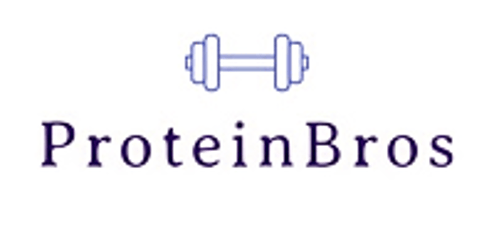
Can Supplements Replace a Healthy Diet? The Truth About Nutritional Shortcuts
Supplements have gained popularity as a convenient way to boost nutrient intake. Many people turn to these products hoping to fill gaps in their diet or improve their health. But can pills and powders truly substitute for whole foods?
1/26/20255 min read


Supplements have gained popularity as a convenient way to boost nutrient intake. Many people turn to these products hoping to fill gaps in their diet or improve their health. But can pills and powders truly substitute for whole foods?
Supplements cannot fully replace a healthy, balanced diet. While they may provide specific nutrients, they lack the complex mix of vitamins, minerals, fiber, and phytochemicals found in whole foods. These components work synergistically in the body, offering benefits that isolated nutrients cannot match.
Eating a variety of nutrient-dense foods remains the best way to meet nutritional needs. Fruits, vegetables, whole grains, lean proteins, and healthy fats provide a wide array of essential nutrients and beneficial compounds. Supplements may complement a healthy diet in certain cases, but they should not be relied upon as a substitute for proper nutrition.
Understanding Dietary Supplements
Dietary supplements come in various forms and serve different purposes. Their regulation and safety are important considerations for consumers.
Definition and Types
Dietary supplements are products intended to supplement the diet. They contain one or more dietary ingredients such as vitamins, minerals, herbs, amino acids, or enzymes. These supplements come in various forms like tablets, capsules, powders, and liquids.
Common types include:
Some supplements target specific health concerns, while others aim to support overall well-being.
Regulation and Safety
The U.S. Food and Drug Administration (FDA) regulates dietary supplements differently from conventional foods and drugs. Manufacturers are responsible for ensuring their products are safe before marketing them.
Key points about supplement regulation:
Supplements don't require FDA approval before sale
The FDA can take action if a product is found to be unsafe
Manufacturers must follow Good Manufacturing Practices
Safety considerations:
Potential interactions with medications
Possible side effects, especially at high doses
Quality and purity can vary between brands
Consumers should consult healthcare providers before starting new supplements, especially if they have existing health conditions or take medications.
The Role of Supplements in Nutrition
Dietary supplements can play a supportive role in nutrition, but their effectiveness and necessity vary. They may help address specific deficiencies or health conditions when used appropriately.
Supplementing Nutrient Deficiencies
Supplements can fill nutritional gaps when dietary intake is insufficient. For example, vitamin D supplements benefit those with limited sun exposure or certain medical conditions.
Folic acid supplements are crucial for pregnant women to prevent neural tube defects in developing fetuses. Vitamin B12 supplements are often recommended for vegans and older adults who may have difficulty absorbing this nutrient from food sources.
Iron supplements can help individuals with iron-deficiency anemia, especially menstruating women and endurance athletes. Calcium and vitamin D supplements may be beneficial for those at risk of osteoporosis.
Limitations and Effectiveness
While supplements can provide specific nutrients, they cannot replicate the complex interactions of nutrients found in whole foods. The bioavailability of nutrients in supplements may differ from those in natural food sources.
Some supplements can interact with medications or cause adverse effects when taken in high doses. For instance, excessive vitamin A intake can lead to toxicity, while high-dose vitamin E supplements may increase the risk of prostate cancer in men.
The effectiveness of many supplements remains debated in scientific literature. Evidence supporting the use of multivitamins for general health is mixed, with some studies showing no significant benefits for preventing chronic diseases.
Comparing Supplements and Whole Foods
Supplements and whole foods differ in their nutrient content, absorption rates, and overall health impacts. While supplements offer concentrated doses of specific nutrients, whole foods provide a complex array of vitamins, minerals, and other beneficial compounds.
Nutrient Absorption
The body absorbs nutrients from whole foods more efficiently than from supplements. Whole foods contain natural compounds that aid in nutrient absorption and utilization. For example, vitamin C in oranges enhances iron absorption from other foods.
Supplements, on the other hand, may not be as readily absorbed. Some synthetic vitamins lack the cofactors found in whole foods that help with absorption. Additionally, high doses of certain supplements can interfere with the absorption of other nutrients.
Whole foods also provide fiber, which slows digestion and allows for better nutrient absorption. This is not typically present in supplements.
Health Benefits of Whole Foods
Whole foods offer numerous health benefits beyond their nutrient content. They contain phytochemicals and antioxidants that protect against chronic diseases. These compounds work synergistically, providing greater health benefits than isolated nutrients.
Fruits and vegetables, for instance, are rich in flavonoids that reduce inflammation and support heart health. Whole grains provide fiber, which aids digestion and promotes gut health. These benefits are often not replicated by supplements.
Whole foods also contribute to satiety and help maintain a healthy weight. The fiber and water content in fruits and vegetables can help people feel full with fewer calories. This effect is not achieved with supplements alone.
Potential Risks of Over-Reliance on Supplements
Excessive reliance on dietary supplements can lead to nutrient imbalances and potential long-term health consequences. These risks stem from overlooking the importance of a balanced diet and natural food sources.
Nutrient Imbalances
Overuse of supplements may disrupt the body's natural nutrient balance. High doses of certain vitamins and minerals can interfere with the absorption of others. For example, excessive zinc intake can impair copper absorption, potentially leading to anemia.
Mega doses of fat-soluble vitamins (A, D, E, K) can accumulate in the body, causing toxicity. Vitamin A toxicity may result in liver damage, while excessive vitamin D can lead to hypercalcemia.
Some supplements interact negatively with medications. St. John's Wort, for instance, can reduce the effectiveness of birth control pills and blood thinners.
Long-Term Health Implications
Prolonged supplement use without proper guidance may have unforeseen health consequences. Studies suggest that high doses of beta-carotene supplements may increase lung cancer risk in smokers.
Long-term use of calcium supplements has been linked to an increased risk of kidney stones in some individuals. Excessive iron supplementation can lead to iron overload, potentially damaging organs like the liver and heart.
Relying solely on supplements may result in missing out on beneficial phytonutrients found in whole foods. These compounds, like flavonoids and carotenoids, offer unique health benefits not replicated by isolated nutrients in pill form.
Guidelines for Integrating Supplements with Diet
Proper integration of supplements with a balanced diet requires careful consideration and planning. Professional guidance and a well-structured approach are key to maximizing the benefits while avoiding potential risks.
Professional Recommendations
Consulting a healthcare provider or registered dietitian is crucial before adding supplements to one's diet. These professionals can assess individual nutritional needs and recommend appropriate supplements based on factors like age, gender, health conditions, and dietary habits.
They may order blood tests to identify specific deficiencies and determine optimal dosages. Regular follow-ups are important to monitor progress and adjust supplement regimens as needed.
Healthcare providers can also advise on potential interactions between supplements and medications, helping to prevent adverse effects.
Creating a Balanced Diet Plan
A balanced diet forms the foundation for any supplement regimen. Start by focusing on whole foods rich in essential nutrients, including fruits, vegetables, lean proteins, whole grains, and healthy fats.
Identify any nutritional gaps in the diet through food tracking or professional assessment. This helps determine which supplements may be necessary.
Create a meal plan that incorporates a variety of nutrient-dense foods. Consider timing supplement intake to maximize absorption and effectiveness.
Remember that supplements should complement, not replace, a healthy diet. Gradually introduce new supplements one at a time to monitor their effects on the body.
Additional info
Social media coming soon!
Contact us
Newsletter coming soon!
© 2024. All rights reserved.
